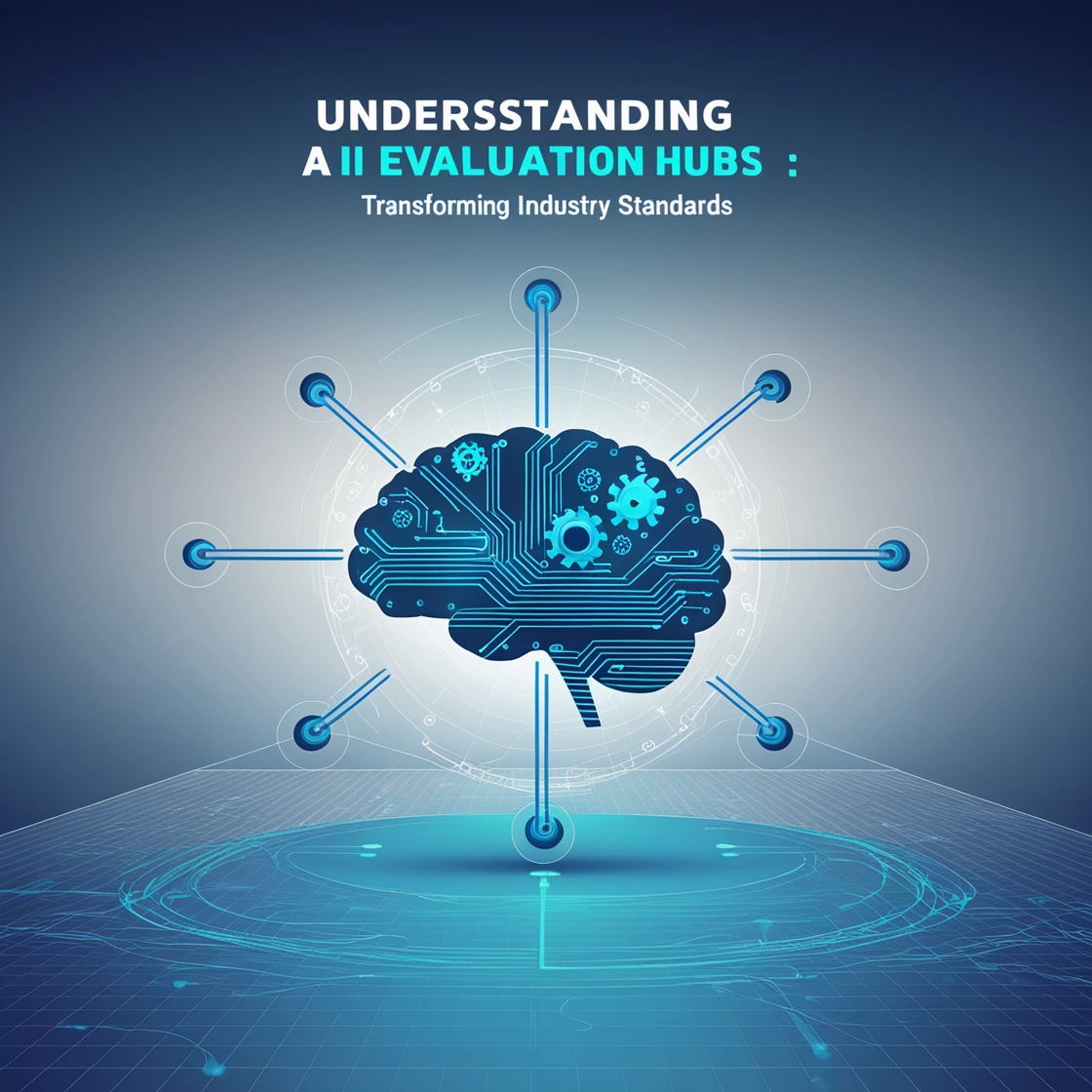Introduction
Artificial Intelligence (AI) is revolutionizing various sectors, from healthcare to finance, but with great power comes great responsibility. Ensuring that AI systems perform reliably and ethically is crucial, and that’s where AI evaluation hubs come into play. These hubs are central to maintaining industry standards, providing a structured framework for assessing AI models.
History of AI Evaluation
AI evaluation has come a long way from its early days. Initially, AI systems were assessed using basic metrics and limited datasets. As AI technology advanced, the need for more sophisticated evaluation methods became apparent. This led to the development of comprehensive evaluation standards and the eventual establishment of AI evaluation hubs.
What are AI Evaluation Hubs?
AI evaluation hubs are platforms that facilitate the systematic assessment of AI models. They consist of several core components, including data repositories, evaluation frameworks, and feedback systems. These hubs play a pivotal role in the AI ecosystem by offering a standardized approach to evaluate and compare different AI models.
Types of AI Evaluation Hubs
AI evaluation hubs can be categorized into public and private hubs. Public hubs are accessible to a broad audience, promoting transparency and collaboration. Private hubs, on the other hand, are tailored to specific organizations, providing customized evaluation frameworks. Additionally, there are specialized hubs that focus on particular AI applications, such as natural language processing or computer vision.
How AI Evaluation Hubs Work
AI evaluation hubs operate through a multi-step process:
- Data Collection and Processing: Hubs gather large datasets necessary for training and testing AI models.
- Evaluation Metrics: They use various metrics to assess the performance, accuracy, and robustness of AI models.
- Feedback Mechanisms: These hubs provide detailed feedback to help developers improve their models.
Benefits of AI Evaluation Hubs
The advantages of AI evaluation hubs are manifold:
- Standardization: They establish consistent evaluation criteria, ensuring fair comparisons.
- Improved AI Performance: Regular assessments help in refining AI models, leading to better performance.
- Transparency and Trust: Open evaluations build trust among users and stakeholders.
Challenges and Limitations
Despite their benefits, AI evaluation hubs face several challenges:
- Data Privacy Concerns: Handling large datasets can lead to privacy issues.
- Resource Intensity: Setting up and maintaining these hubs requires significant resources.
- Bias in Evaluation: There is a risk of inherent biases affecting the evaluation process.
Key Players in AI Evaluation Hubs
Several organizations are at the forefront of AI evaluation hubs. These include tech giants, research institutions, and industry consortia. Collaboration between these entities is crucial for the continuous improvement of evaluation standards.
Case Studies
Success stories from various sectors highlight the effectiveness of AI evaluation hubs. For instance, in healthcare, evaluation hubs have helped improve diagnostic AI models, leading to better patient outcomes. Lessons learned from these cases emphasize the importance of robust evaluation frameworks.
Future Trends in AI Evaluation Hubs
The future of AI evaluation hubs looks promising with technological advancements driving their evolution. Emerging standards are expected to further enhance the reliability and fairness of AI evaluations.
Impact on Industry Standards
AI evaluation hubs are instrumental in shifting industry benchmarks. They influence regulatory frameworks by providing empirical evidence for setting new standards.
AI Evaluation Hubs in Different Sectors
Different sectors leverage AI evaluation hubs to meet their unique requirements:
- Healthcare: Ensuring the accuracy and safety of diagnostic AI tools.
- Finance: Evaluating risk assessment models for better financial decision-making.
- Manufacturing: Assessing AI for predictive maintenance and quality control.
Implementing AI Evaluation Hubs
Integrating AI evaluation hubs into an organization involves several steps:
- Defining Objectives: Clearly outline the goals of the evaluation process.
- Choosing the Right Tools: Select appropriate evaluation frameworks and metrics.
- Regular Updates: Continuously update the evaluation criteria to reflect new advancements.
The Role of AI Evaluation Hubs in Ethical AI
Ethical considerations are paramount in AI development. AI evaluation hubs ensure fairness by identifying biases and promoting responsible AI use.
Conclusion
AI evaluation hubs are transforming industry standards by providing a systematic approach to assess AI models. Their role in ensuring the reliability, transparency, and ethical use of AI cannot be overstated. As technology evolves, these hubs will continue to play a crucial role in shaping the future of AI.
FAQs
1. What is an AI evaluation hub? An AI evaluation hub is a platform that systematically assesses AI models using standardized criteria and feedback mechanisms.
2. Why are AI evaluation hubs important? They ensure the reliability, fairness, and transparency of AI models, helping to build trust among users and stakeholders.
3. What challenges do AI evaluation hubs face? Challenges include data privacy concerns, resource intensity, and potential biases in the evaluation process.
4. How do AI evaluation hubs benefit the industry? They provide standardized evaluation criteria, improve AI performance, and promote transparency and trust.
5. What is the future of AI evaluation hubs? Technological advancements and emerging standards will continue to enhance the reliability and fairness of AI evaluations.
